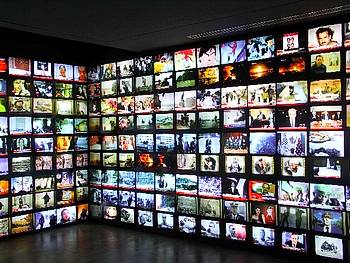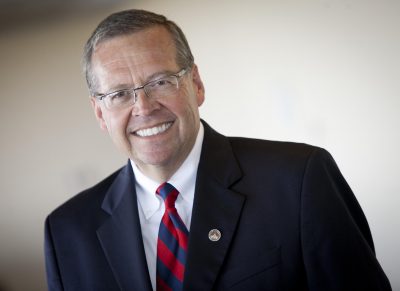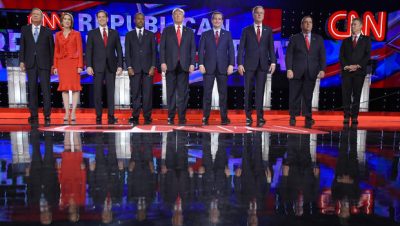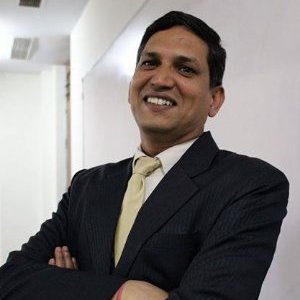By
Ratnesh Dwivedi
In the days of mediatization when it is mostly the media which sets the agenda and information warfare decides public perception, it is very important for common news consumers to understand how good or bad information warfare is in corporate media.
And for this I spoke to distinguished Texas State University Professor Steven Beebe, who is also Visiting Professor at Oxford University.
Ratnesh Dwivedi: Mediatization is an old but slow phenomenon. It basically defines the role of media in setting up an agenda and then allows the political establishment to follow. It also intervenes in the decision making process of civil society and politicians. Sir, how do you think this process of mediatization is going to influence politics and society in the coming days/years?
Steven Beebe: Although the mediatization or agenda-setting function of the media is a concept that has been around for several decades, I do think it is a useful metaphor to explain some, certainly not all, aspects of politics and what people talk about. I wonder, for example, if Donald Trump’s political antics would be something I would be incorporating as part of this response if the media did not continue to emphasize his behavior. Media coverage begats media coverage. And to some degree media coverage influences our interpersonal conversations as well. My primary area of expertise is in communication skill development rather than mediatization theory. I am especially interested in how the media and other aspects of technology influence our interpersonal communication. Contemporary media stories do influence what we talk about in our conversations. And depending on the news source or media bias, the news story may also influence how we think as well as what we think about the topic.
RD: We are living in an increasingly connected and transparent world. The media, especially news media, is living under immense pressure to put information first among their news consumers. This and several other factors have led to an information warfare. Could you please elaborate on this term a bit more with some prevailing examples?
SB: I don’t think it’s new that media outlets compete. News organizations want to be first to solidify their prominence. Whether it is Donald Trump in U.S. politics, a recent terrorist strike, or other “breaking news” story, media outlets seek to break the news and scoop their competition.
RD: How different is media warfare in the west and in countries like Russia, India and China?
SD: The difference lies in the restricted freedom of the press that occurs in some of the countries that you identify. Concern for the consequences of what will occur if certain stories are broadcast is a very real concern. Although I have not been to India, my brief experiences in Russia and China suggest that there are differences in press freedom in these countries.
RD: What kind of fear do the top media people face in terms of their success and sustainability as star or icon among their target audience?
SD: Survival. Whether being an on-air talent or working behind the scenes (where there is more stability) there is concern about longevity in a media career. As in most careers, there is competition, ageism, and other factors that influence the marketability and career health of media employees.
RD: In a media environment and, in your opinion, what is more important for the success of a media entity-Star or Iconic Journalist or News?
SD: It is important that the media “star” engender a positive emotional response from his/her listeners/readers. How a media personality makes the reader/listener feel is vital. Appearance, skill, timing, aptitude all contribute to how someone makes another person feel—emotional response to the communicator is one of the central factors in “likability” and popularity.
Mark J Terrill / AP
RD: In what direction is Media warfare heading? Will it give a boost to news media in terms of good content or will it decline in terms of news value?
SD: There will always be competition to get the story first and get the story accurately. So I see no major changes in the criteria used to evaluate media. Technology and its multiple media outlets mean that speed has increased as a criteria. I see the continuation of more niche journalism and the customization of media to individual listeners and readers.
RD: I am citing three examples where media warfare led iconic journalists to resign or shift their loyalty: 1- Oprah Winfrey, 2- Larry King who joined Russia Today and 3- Jeremy Clarkson, formerly of Top Gear on BBC.
SD: Media stars will continue to exist. The public enjoys learning about, seeing, hearing what celebrities do; media celebrities are no different than other celebrities. Whether it is Brian Williams or Jeremy Clarkson, media stars are not immune from ethical standards and behavior. But the public will remain interested in individuals who have made a long-term emotional impression on them. Again, I think emotional response is key—whether its an emotional response to a person, news organization, or technology channel. How a message makes us feel is central to influencing the message’s power, importance, staying power and prominence.
Thank you for the opportunity to share these thoughts.
Steven Beebe
Steven A. Beebe is an American professor of communication. He is a noted C. S. Lewis scholar, and is recognized for discovering a fragment of an unpublished manuscript started by C.S. Lewis and J. R. R. Tolkien about communication (Language and Human Nature) while examining Lewis’ documents in the Oxford University Bodleian Library. Beebe is currently an instructor and researcher at Texas State University, San Marcos. Beebe is a highly published scholar with more than 50 published articles and book chapters and he is an author of more than 12 books. He is the immediate past president of the National Communication Association and is responsible for helping develop the Russian Communication Association.
Ratnesh Dwivedi
Ratnesh Dwivedi transferred his skills of the Media Industry into his passion for writing, teaching and commenting on Global Affairs. He has seen the changing face of global politics as a budding media professional who regularly commented on the changing equation between the U.S., Middle East and South Asia. Later he continued his association as an Analyst and Researcher on Global Politics through his association as Charter Member of the Bush Presidential Center,Texas.
Apart from his association with the Bush Center, Ratnesh Dwivedi is associated with several other organizations such as-ECREA-Brussels-Member, Institute of English Studies, University of London-Member, Mission Essential-Virginia-Member, Carnegie Council-Washington-Member, American Astronomical Society-Washington-Member, Internet Society-Virginia-Member, CSIS-PONI-Wshington-Member, RTDNA-Wshington-Member, NSTA-Virginia-Member. He has authoredfive books. The Story of an Intern-Reportage, The Cosmic Mask -Space Fiction. Third and fourth are awarded academic books. His fifth book on US Intelligence and Cost of War is released world wide on November 7,2015. Ratnesh Dwivedi bears the honor of attending several high rated workshops of NASA and continuously follows NASA updates since 2003.
He has been associated with Amity University, where he led a project to set up Community Radio Station and TV Studio apart from his teaching assignment. He is a widely published academician in the field of Media and Communication with nearly 30 publications and presentation in countries like Russia, Ukraine, Kazakhstan, Germany, Slovinia, Czech, Britain, USA, Norway and India with nearly 10000 downloads, which itself is a record.
He is Asst. Professor of Journalism at Teerthankar Mahaveer University in India.He is Consultant with EEUA, Moscow and a NJ, USA based Energy Firm. He is on Board of Directors and serves as VP-Global Media Marketing with Transitional Assistance, USA, which works for veterans of US Army. He lives in New Delhi with his wife and son.







No Comments Yet!
You can be first to comment this post!